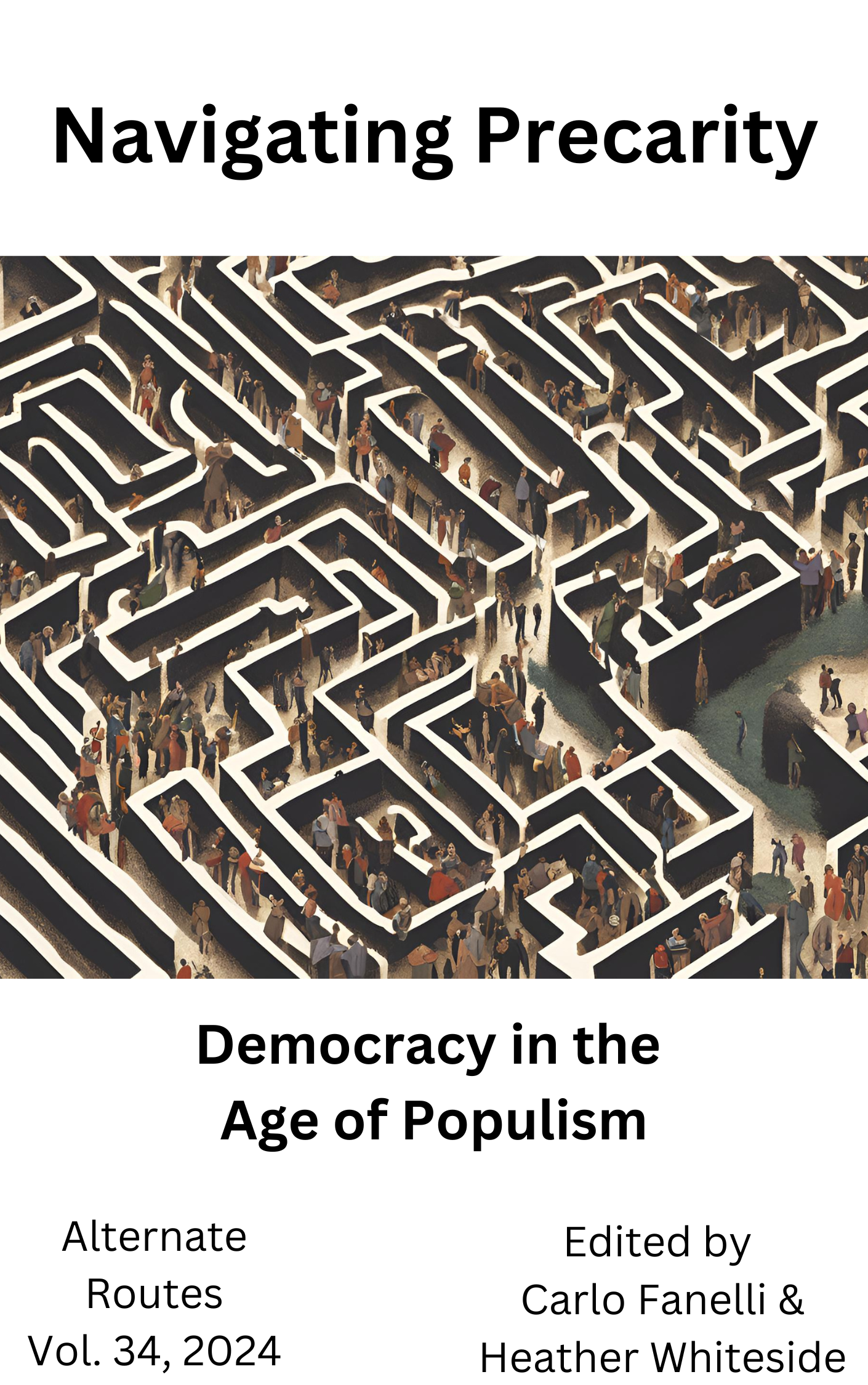Québec Solidaire’s New Party-Movement Model: Stronger Organizational Power at the Cost of Deeper Democracy and Structural Power
Abstract
Based on semi-directed interviews, this paper analyzes the recent changes in the political strategy of Québec Solidaire, characterized by a shift from a so-called “party of the ballots and the streets” to a new “party-movement”. With the help of party-based campaigns between elections, this organizational model aims to expand the level of popular mobilization by facilitating the activism of party members and sympathizers through decentralized and easily accessible resources available on a digital platform. In addition, the proponents of this “party-movement” consider it a powerful means to radicalize social struggles beyond the weaknesses of certain social movements. Conversely, other interviewees see this party form as developing a new parallel structure that shortcuts the party’s internal democratic structures and grassroots militant networks. We argue that QS’s party-movement model may at best develop a strong organizational power but rooted in a weak structural power, thus risking being unable to alter the existing balance of class forces for wining bold reforms and implementing a post-capitalist transition in spite of capital’s opposition.
Downloads
Published
How to Cite
Issue
Section
License
Copyright (c) 2024 Alternate Routes: A Journal of Critical Social Research

This work is licensed under a Creative Commons Attribution-NonCommercial-NoDerivatives 4.0 International License.
Articles are published in Alternate Routes: A Journal of Critical Social Research under the Creative Commons "Attribution/Non-Commercial/No Derivative Works" Canada licence.
The copyright for the articles published in this journal is retained by the authors, with first publication rights granted to the journal. By virtue of their appearance in this open access journal, articles may be used, with proper attribution, in educational and other non-commercial, not-for-profit settings. The submission of a manuscript to Alternate Routes will be taken to mean that the author understands and agrees to the following:
- the manuscript represents original work not previously published;
- the manuscript is not being considered elsewhere for publication in the same language (publication elsewhere in an alternate language does not preclude acceptance of submission to Alternate Routes);
- appropriate written copyright permissions have been secured for republication of any copyrighted material contained in the manuscript;
- copyright for this article is retained by the author, with first publication rights granted to Alternate Routes;
- by virtue of its appearance in this open access journal, it is understood that the article is freely available for use, with proper attribution, for educational and other non-commercial purposes;
- reuse of the article for commercial purposes by anyone other than the author requires permission of the author;
- the author agrees to cite Alternate Routes as a source whenever h/she later republishes or reuses the article in other platforms.


